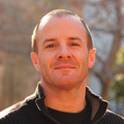Contribution to Book
Self and peer assessment as a means of enhancing the student learning experience: a unique and practical model
Student Learning: Assessment, Perceptions and Strategies
(2016)
Abstract
Universities are under increasing pressure to better meet the needs of their students and prepare them for the economic realities of the 21st century. At the same time, universities have been criticized for depersonalizing education and not meeting the needs of their students. The depersonalization of learning is linked to student engagement, which has been shown to be an indicator of student success in tertiary study. De-personalising learning and the consequent lack of engagement illustrates a lack of dedication to student learning on the part of the educator, the student and consequently the university. Innovative assessment practices have the potential to shift the way universities function by focusing on well designed, innovative assessment tasks where students are expected to work collegially and are actively involved in self and peer assessment
This chapter contends that students are significantly and detrimentally disengaged from the assessment process when traditional models of assessment are followed. Furthermore, the chapter will propose a change of direction in tertiary assessment towards more authentic and engaging practices that foster useful metacognitive skills and are focused on deep, sustainable, authentic learning. Two unique models of assessment are proposed: Authentic Assessment for Sustainable Learning (AASL) and ASPAL (Authentic Self & Peer Assessment for Learning). These have been developed to focus on authentic learning and the authentic assessment of that learning.
This chapter explains the conceptual development of the models and provides justification for their implementation. Additionally, the article provides an explanation of the assessment process and discusses the validity of the process for summative purposes. The results of the implementation of these models over five years suggests that students have increased engagement levels and are able to more accurately judge their own work and make reasonably accurate judgments of the work of their peers.
Disciplines
Publication Date
2016
Editor
Dale Bowen
Publisher
Nova Science Publishers
Series
Education in a Competitive and Globalizing World
ISBN
978-1-63485-152-7
Citation Information
Kearney, S. (2016). Self and peer assessment as a means of enhancing the student learning experience: a unique and practical model. In D Bowen (ed), Student Learning: Assessment, Perceptions and Strategies. Nova Science Publishers: Online.
